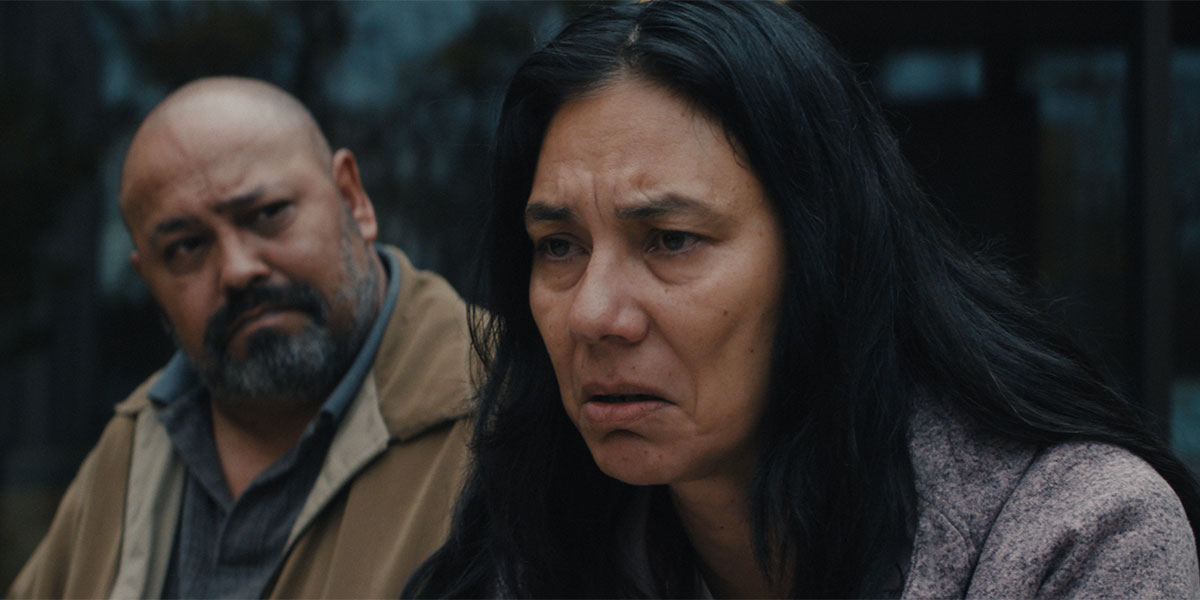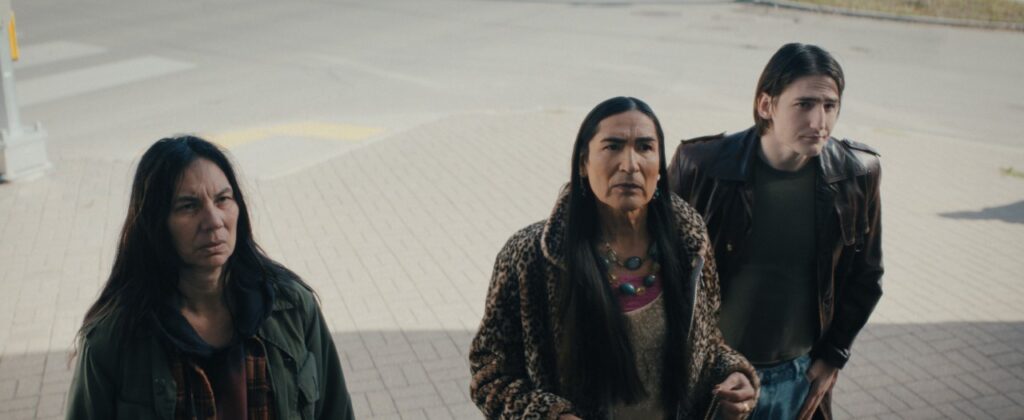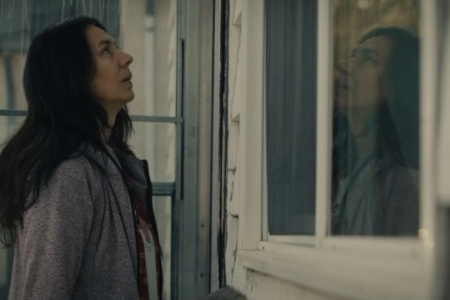Written and directed by Ryan Cooper and Eva Thomas, Aberdeen shines a light on the indomitable Aberdeen, who has been forced from her home due to flooding. As she adjusts to big-city life, she must face the inter-generational cycle of trauma that has been tearing her family apart for 5 generations in order to protect her grandchildren.
Forced to live in Winnipeg, Aberdeen (Gail Maurice) has found some good friends but also fallen into some dire circumstance. She imbibes, she smokes, and sometimes she has no stable address – these make her a target for the local authorities. It is through one of her run-ins with the law that she loses all of her identifications (IDs).

This incident leads Aberdeen to reach out to governmental offices and Indigenous groups in an effort to get new identifications. At the same time, she is also attempting to reconnect with her grandchildren, who are in foster care, and attempting to find her long-lost daughter.
Her only supports include her brother Boyd (Ryan Black), who always shows up when Aberdeen calls, her closest friend Alfred (Billy Merasty) and his boyfriend Raven (Liam Stewart-Kanigan). As she continually tries to get new IDs, Alfred and Rave are by her side. What becomes abundantly clear is that without even one piece of ID, no one is willing to help her out. There are many obstacles she comes across every step of the way. There are plenty of reasons for Aberdeen to be angry and frustrated.
For some viewers, the way Aberdeen acts might seem counterintuitive. Why does she drink? Why is she so angry? The system she is forced to navigate as an Indigenous person makes it next to impossible for her to get the support she needs to get her family back together. As a last resort, Aberdeen decides to go back to her childhood home in the reservation to her a new status card. There, she reconnects with her friend Grace (Jennifer Podemski) who offers her some much needed comfort. Through this kind encounter, Aberdeen regains some hope and reaches out to her daughter.

Theirs is not a happy reunion, however, this serves to propel Aberdeen into further action. She goes back to the city to get all the paperwork required to get her grandkids back and a home for her family.
Maurice’s portrayal of Aberdeen is blunt and visceral. For anyone who thinks her character is dealt ‘too much’ in this film, unfortunately, this is the reality for some. The inter-generational trauma is very real and has real effects on all generations. This is what this film reminds us of – that it can take almost a lifetime to undo all the grief and destruction from this trauma. Nonetheless, change is possible and families can reunite and start anew.
During the film’s premiere at TIFF, I had the opportunity to speak with filmmakers Ryan Cooper and Eva Thomas. They talked about how their friendship led to writing and directing this film, as well as, the importance of honouring the stories of women like Aberdeen.
Aberdeen continues its journey through film festivals. Stay tuned for updates on screenings coming to a cinema near you.






